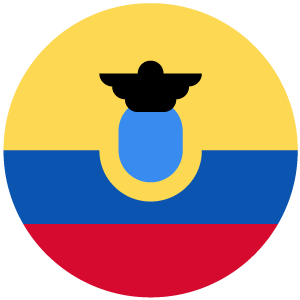About the project
What is INCATA?
INCATA is an innovative project funded by the Gates Foundation designed to study the relationship between commercial small-scale producers (cSPP) and micro, medium and small enterprises (MSME) in the hidden middle of agrifood value chains, to explain how it underpins and contributes to an inclusive agricultural transformation.
INCATA will answer four questions:
- What kickstarts the dynamic of commercialization of SSP and engagement with MSME in the hidden middle? How do some SSP become commercial, how do MSME get started, and how these two actors co-develop and nurture each other?
- Which, how and why some cSSP and some MSME move along in the transformation process, while others don’t?
- To what degree does increasing commercialization and development of MSME translate into poverty reduction and women’s economic empowerment? Who is included, and who doesn’t or gets stuck at low inclusion levels? How does inclusion accelerate the transformation?
- What investments and policies have the potential to accelerate the symbiotic co-development of cSSP and MSME and the inclusion effects of that dynamic?
Our main objectives are as follows:
- Enhance Public Policies: Enable supportive public policies for commercial small-scale producers (cSSPs) and agrifood micro, small, and medium enterprises (MSMEs).
- Boost Investment Impact: Increase the impact of public and private investments in improved products, services, and practices for cSSPs and agrifood MSMEs.
- Improve Data and Evidence: Enhance the quality, availability, and utility of data and evidence by filling global and national gaps regarding the role of commercial SSPs and MSMEs in driving inclusive agricultural transformation.
To achieve these objectives and answer the main research questions, INCATA operates through three complementary workstreams. The first two focus on detailed agricultural value chain studies in horticulture and aquaculture, conducted in Kenya by the Tegemeo Institute and in Odisha, India, by the International Food Policy Research Institute (IFPRI), with both studies benefiting from collaboration with Michigan State University (MSU) and RIMISP. The third workstream, led by Fred Dzanku with support from team members and research assistants, involves comprehensive analyses of LSMS-ISA data across six Sub-Saharan African countries.
Nuestras oficinas:

- Chile: Huelén 10. Providencia, Santiago, Región Metropolitana. (+56-2) 2236 4557 | Fax (+56-2) 2236 4558.

- Ecuador: Checoslovaquia E9-95 entre Suiza y Moscú. Edificio Eveliza Plaza. Planta Baja. Quito. (+593-2) 5150144.

- Colombia: Carrera 9 No 72-61 Oficina 303. Bogotá. (+57-1) 2073 850.
